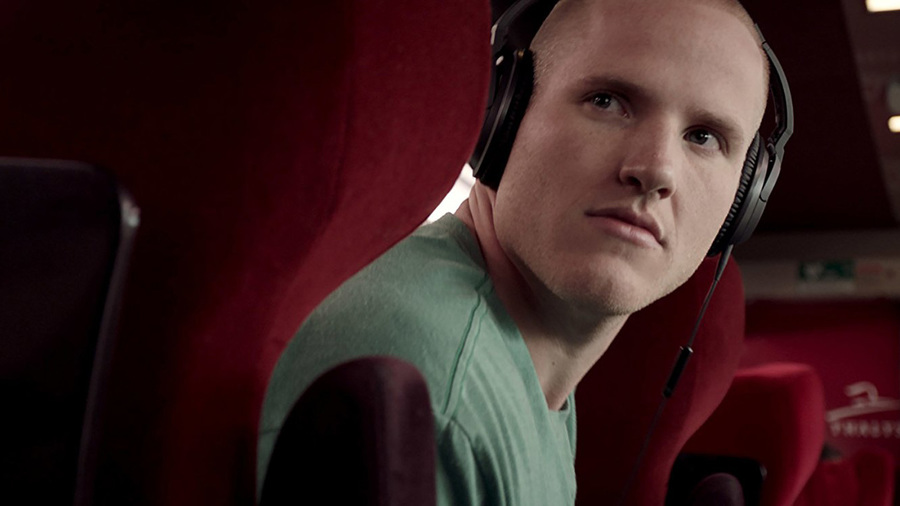
“Is there a full-length feature film in the dramatic but blink-and-it’s-over incident of three young Americans subduing a heavily armed terrorist determined to kill as many people as possible on a Paris-bound fast train two years ago?” asks the Hollywood Reporter’s Todd McCarthy. “Unfortunately for Clint Eastwood’s latest, there really isn’t. The director’s risky decision to cast the three actual guys who pulled off the heroic act stands as the most novel and interesting aspect of the movie, which unfortunately is mostly comprised of banal, drama-free, quotidian scenes that merely reinforce the men’s status as regular Joes who, one day, had the opportunity for greatness thrust upon them.”
For the New York Times’ A. O. Scott, “the thing to admire about The 15:17 to Paris is precisely its artlessness. Mr. Eastwood, who has long favored a lean, functional directing style, practices an economy here that makes some of his earlier movies look positively baroque. He almost seems to be testing the limits of minimalism, seeing how much artifice he can strip away and still achieve some kind of dramatic impact. There is not a lot of suspense, and not much psychological exploration, either. A certain blunt power is guaranteed by the facts of the story, and Mr. Eastwood doesn’t obviously try for anything more than that. But his workmanlike absorption in the task at hand is precisely what makes this movie fascinating as well as moving. Its radical plainness is tinged with mystery.”
“15:17 introduces us early on to Spencer Stone, Alek Skarlatos, and Anthony Sadler, three life-long friends who met up in Europe in the summer of 2015 for a transcontinental holiday,” writes Screen’s Tim Grierson. “All in their mid-twenties, they play themselves, with actors portraying them as boys. Soon, we’ll learn how they became friends and trace the developments that brought them to that Thalys train, where they will square off against a heavily armed Moroccan terrorist. Running just over ninety minutes, 15:17 devotes perhaps ten minutes to the actual attack, which Eastwood films with gritty, raw intensity. The bulk of this leisurely film, written by Dorothy Blyskal from a book co-authored by the three men, is about the bond between Spencer, Alek, and Anthony, who are depicted as ordinary Americans thrust into an incredible situation.”
“The reason that’s very Clint Eastwood, even though you can imagine filmmakers from Edward Zwick to Richard Linklater coming up with the same concept, is that Eastwood has always had a unique investment in the gritty conviction of the men of action he portrays, as both actor and director,” writes Variety’s Owen Gleiberman. “Dirty Harry wasn’t just a scowling cop badass in an underworld thriller; he was a guy who did what had to be done. (He was, in essence, a political character: a right-wing urban warrior with an agenda expressed through his Magnum.) Eastwood’s Western heroes, in films from The Outlaw Josey Wales to Unforgiven, scowl at the world with the moral weight of their mission. And in his more recent work, from the down-in-the-muck, rabble-rousing American Sniper to the high-minded, anti-bureaucratic Sully, Eastwood has doffed his cap to true-life manly men whose split-second willingness to act makes the difference between courage and doubt, victory and defeat. Eastwood isn’t just making ‘action films.’ He’s keeping alive the dream of what it means to take action.”
Time’s Stephanie Zacharek: “The sections detailing the men’s childhood in Sacramento, with Judy Greer and Jenna Fischer playing beleaguered moms? Not so exciting. But then, the very averageness of these conscientious, gutsy guys is precisely the point.”
“By the time we reach the attack sequence,” writes Robert Abele at TheWrap, “its realistic nerviness—from Sully vets Tom Stern’s fleet camerawork and Blu Murray’s editing—comes almost as a mood-altering relief: artfulness has arrived. There’s a casually physical authenticity to the quickness, the fear, the brutality, and the attention given a wounded passenger, that gives these tense minutes a heart-stopping believability. . . . But it’s a meander until then.”
“Re-read the news story,” advises Nigel Andrews in the Financial Times: “that was good. Don’t bother with the movie. All else apart, courage loses its charm when coaxed to spend ninety-four minutes congratulating itself.”
“We know this series of events weren’t coincidences,” Sadler tells Harriet Sherwood in the Guardian. “It’s like our lives were leading up to that moment. You don’t always know what plan God has for you. What we’ve come to realize with hindsight is that [this] was all part of a plan, of a bigger picture. That’s where we were supposed to be that day.” Adds Skarlatos: “We were vessels, being used.”
For news and items of interest throughout the day, every day, follow @CriterionDaily.
from The Criterion Current http://ift.tt/2C3sNLb
Nessun commento:
Posta un commento